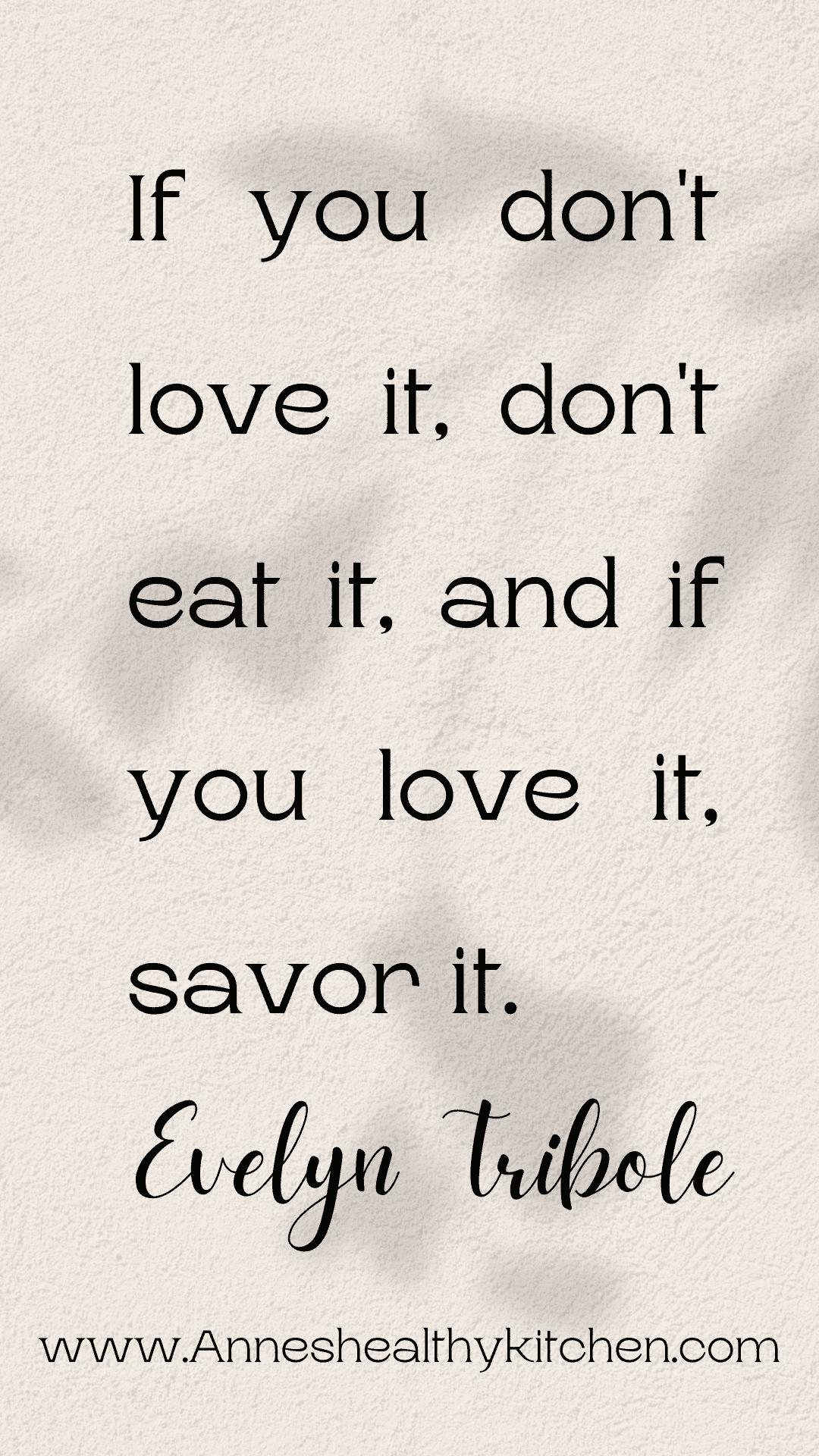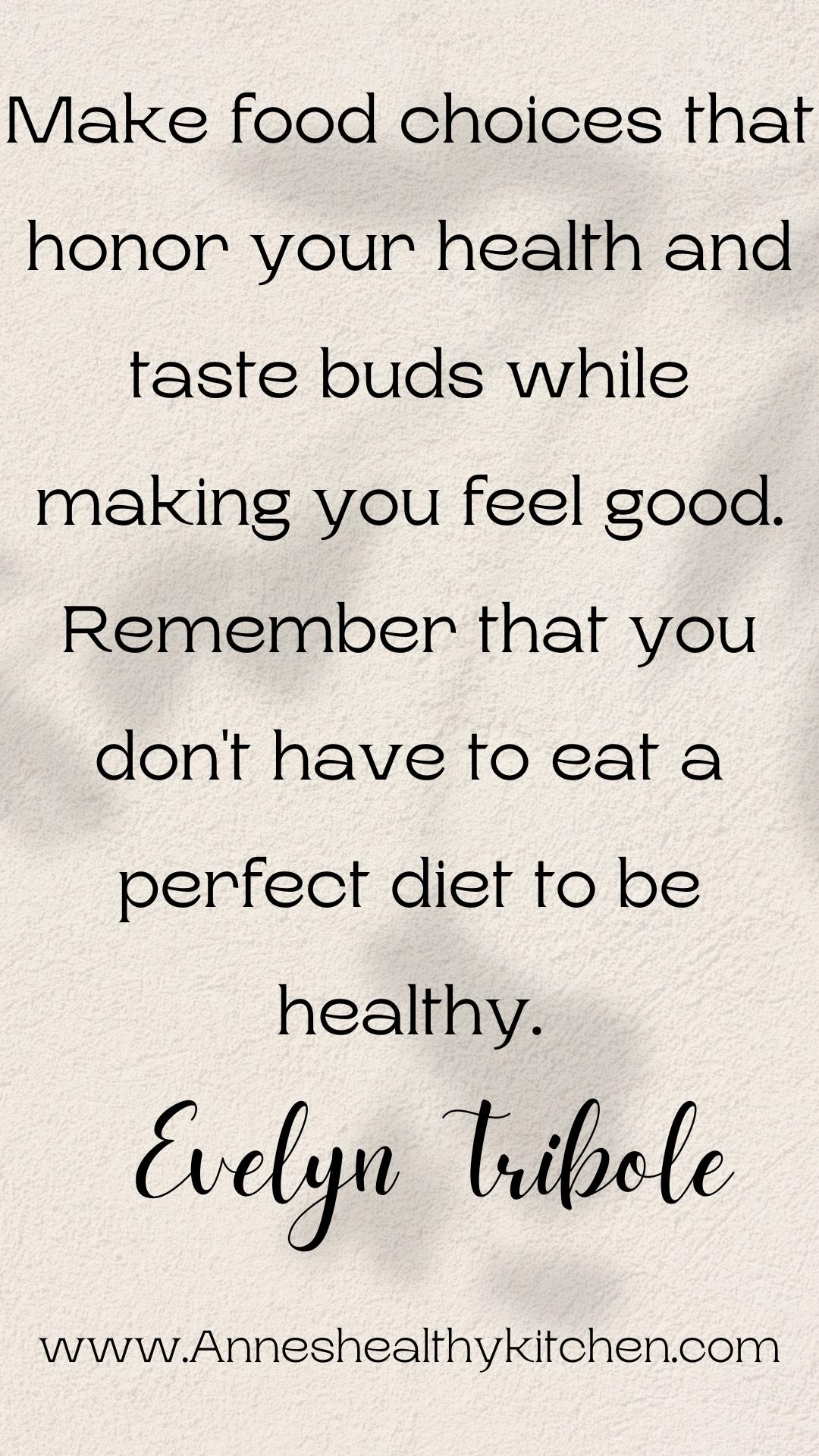Intuitive eating is a revolutionary approach to food and wellness that is gaining popularity among people looking to break free from the restrictive and often harmful diet culture. At its core, intuitive eating is about listening to your body, respecting its signals, and making food choices that honor your health and taste buds while making you feel good.
One way to gain inspiration and motivation on your intuitive eating journey is through reading and reflecting on quotes from experts and advocates in the field embrace intuitive eating. These quotes can help you better understand the principles of intuitive eating, challenge harmful beliefs and attitudes about food and body image, and encourage you to trust your instincts and embrace a more positive and joyful relationship with food.
Understanding Intuitive Eating

Intuitive Eating aims to help people develop a healthy relationship with food, mind, and body. It was developed by Evelyn Tribole and Elyse Resch in 1995 and has since gained a lot of popularity among people who want to break free from the dieting mentality and embrace a more holistic approach to health.
The core principle of Intuitive Eating is to listen to your body and honor its signals of hunger and fullness. It encourages people to trust their bodies and eat when they are hungry and stop when they are full. This approach is in contrast to traditional dieting, which often involves following strict rules and restrictions on what and how much to eat.
Intuitive Eating is based on ten principles that guide people towards a healthier relationship with food and their bodies. These principles include rejecting the diet mentality, honoring hunger, making peace with food, challenging the food police, respecting fullness, discovering the satisfaction factor, honoring feelings without using food, respecting food freedom in your body, exercising and feeling the difference, and honoring your health with gentle nutrition.
Intuitive Eating also encourages people to embrace their body diversity through the Health at Every Size (HAES) approach, which emphasizes that health is not determined by body weight or size but by a person’s overall physical, emotional, and mental well-being.
Another key concept in Intuitive Eating is Gentle Nutrition, which involves making food choices that honor both taste and health. It encourages people to eat a variety of foods that provide essential nutrients while also enjoying the pleasure of eating.
Overall, Intuitive Eating is a holistic approach to health that emphasizes self-care, body acceptance, respect, and trust in one’s own innate wisdom. It is a powerful tool for anyone who wants to break free from the dieting mentality and embrace a more sustainable and enjoyable approach to health and wellness.
Intuitive Eating quotes
Intuitive eating is a revolutionary program that allows individuals to break free from the diet culture and embrace a healthy relationship with food. Here are some quotes on intuitive eating that can inspire and motivate anyone who is looking to start their journey towards intuitive and healthy eating now.



Other quotes include:
“Listen to your body. It knows what it needs.” – Unknown
“Eat when you’re hungry, stop when you’re satisfied. Trust your body to guide you.”
“Your body knows what it needs. Listen to its cues, and nourish it with love.”
“Food is not the enemy; it is your body’s fuel and your source of pleasure. Embrace the joy of eating.”
“Give yourself permission to enjoy all foods without guilt. Balance and variety are key.”
“Intuitive eating is about honoring your hunger and respecting your fullness.”
“Your worth is not determined by what you eat. Be kind to yourself and practice self-compassion.”
“Release the diet mentality and embrace the freedom of intuitive eating.”
“Listen to your body’s cravings; it’s trying to tell you something.”
“Respect your body’s unique needs and preferences. It’s your best guide.”
“Savor the taste and experience of each bite. Mindful eating is the path to fulfillment.”
“Reject the idea of ‘good’ or ‘bad’ foods. All foods can be part of a balanced diet.”
“Ditch the calorie-counting and focus on nourishing your body with whole, wholesome foods.”
“Honor your emotions without turning to food. Find alternative ways to cope and soothe.”
“Eating is a natural, joyful act. Embrace the pleasure of food without restrictions.”
“Intuitive eating is not just about what you eat but also how you eat. Slow down and savor the journey.”
These quotes on how intuitive eating helps us can be found on various platforms such as Instagram, where they are often shared as part of the anti-diet movement. They serve as a reminder that there is no one-size-fits-all approach to health and that intuitive eating can be a powerful tool for finding balance and joy in our relationship with food.
The Power of Affirmations in Intuitive Eating
Affirmations are powerful tools that can help individuals achieve their goals and overcome challenges. In the context of intuitive eating, affirmations can help individuals build a positive relationship with food and their bodies. By using affirmations, individuals can challenge negative thoughts and beliefs about food and their bodies and replace them with positive and empowering ones.
One of the main challenges of intuitive eating is overcoming the “food police.” The food police are the negative thoughts and beliefs that individuals have about food and their bodies. These thoughts can be very destructive and can lead to unhealthy, eating habits and behaviors and negative self-talk. Affirmations can help individuals challenge these negative thoughts and beliefs and replace them with positive and empowering ones.
For example, instead of thinking “I shouldn’t eat this cookie because it’s bad for me,” an individual can use an affirmation like “I honor my body by eating foods that make me feel good.”
Another benefit of using affirmations in intuitive eating is that they can help individuals build willpower. Willpower is the ability to resist temptation and make healthy eating choices often. By using affirmations, individuals can strengthen their willpower and make it easier to resist unhealthy foods and behaviors.
Finally, affirmations can help individuals honor their health and well-being. By focusing on positive and empowering thoughts, individuals can make choices that support their health and well-being. For example, instead of thinking “I’m not good enough because I ate this cookie,” an individual can use an affirmation like “I honor my body by making choices that support my health and well-being.”
The Science Behind Intuitive Eating
Intuitive eating is a practice that has gained popularity in recent years as a way to promote a healthy relationship with food. The basic principles of intuitive eating include eating when hungry, stopping when full, and having no restrictions on types of food eaten with the exception of medical reasons. But what is the science behind this approach?
Research has shown that intuitive eating can lead to improved nutrition, better mental health, and a reduction in disordered eating behaviors. A review of studies on intuitive eating found that it was associated with lower body mass index (BMI), better cholesterol levels, and improved blood pressure. This suggests that intuitive eating may have significant health benefits.
One reason for these benefits may be that intuitive eating promotes conscious living. By paying attention to hunger cues, and fullness cues, individuals are more likely to eat when they are actually hungry and stop when they are full. This can help prevent overeating and promote a healthy weight.
Additionally, intuitive eating may help individuals develop a more positive relationship with food. By allowing all types of foods in moderation, individuals with eating disorders may feel less guilt and shame around eating certain foods. This can lead to improved mental health and a reduction in disordered eating behaviors.
Overall, the science behind intuitive or mindful eating suggests that it may be a beneficial approach to nutrition and health. By promoting conscious living and a positive relationship with food, intuitive eating may help individuals on weight loss diets improve their overall well-being.
Key Takeaways
Intuitive eating is a revolutionary approach to food and wellness that emphasizes listening to your body and making food choices that honor your health and taste buds while making you feel good.
Reading and reflecting on quotes from experts and advocates in the field can help you better understand the principles of intuitive eating, challenge harmful beliefs and attitudes about food and body image, and encourage you to trust your instincts and embrace a more positive and joyful relationship with food.
Incorporating intuitive eating principles into your life can help you break free from the restrictive and often harmful diet culture and build a healthier, happier, and more sustainable relationship with food.
Dismantling the Diet Culture

Intuitive Eating is a revolutionary approach to eating that encourages individuals to reject the diet mentality and instead listen to their body’s natural hunger and fullness cues. The diet mentality is the belief that one must restrict their food intake and lose weight to achieve health and happiness. This mentality is pervasive in our culture, and it can be difficult to break free from its grasp.
Many people believe that losing weight is the key to happiness and success, but the truth is that weight loss does not guarantee these things. In fact, research has shown that yo-yo dieting, or the cycle of losing and regaining weight, can actually be detrimental to one’s health.
Intuitive Eating encourages individuals to reject the diet mentality and instead focus on nourishing their body with foods that make them feel good. This means that there are no “good” or “bad” foods, and all foods can be enjoyed in moderation. By rejecting the diet mentality, individuals can break free from the cycle of restriction and binging that often accompanies dieting.
One of the key principles of Intuitive Eating is to honor one own body’s hunger and fullness cues. This means that individuals should eat when they are hungry and stop when they are full, rather than following strict meal plans or calorie restrictions. By listening to their body’s natural signals, individuals can learn to trust themselves and their ability to nourish their body.
In conclusion, the diet mentality is a pervasive belief that can be difficult to break free from. Intuitive Eating offers a revolutionary approach to eating that encourages individuals to reject the diet mentality and instead listen to their body’s natural hunger and fullness cues. By honoring their hunger and fullness cues and focusing on nourishing their body with foods that make them feel good, individuals can break the diet cycle, free from the cycle of restriction and binging that often accompanies dieting.
Self-Esteem and Body Image
Intuitive eating is not just about eating what you want when you want it. It is also about learning to trust your body and respecting it. This can lead to a positive impact on self-esteem and body image. By focusing on internal cues instead of external rules, individuals can learn to appreciate their bodies for what they are and not what they look like.
Self-esteem is a crucial component of mental health. It is defined as one’s overall sense of self-worth or personal value. When individuals have high self-esteem, they tend to feel confident and capable in their abilities. On the other hand, low self-esteem can lead to negative thoughts and feelings about oneself.
Body image is closely related to self-esteem. It refers to how individuals perceive their physical appearance. A positive body image means that individuals feel comfortable and confident in their bodies, while a negative body image can lead to feelings of insecurity and dissatisfaction.
Intuitive eating can help improve both self-esteem and body image by promoting a positive relationship with food and one’s body. It encourages individuals to listen to their bodies and eat in a way that feels good and satisfying, rather than following strict rules or diets. This can lead to a greater appreciation for one’s body and its abilities.
In addition, intuitive eating can help individuals focus on the health benefits of a particular food or foods rather than its calorie content or appearance. This can lead to a more positive relationship with food and a greater sense of self-worth.
Overall, intuitive eating can be a powerful tool for improving self-esteem and body image. By focusing on internal cues and respecting one’s body, individuals can learn to appreciate themselves for who they are, rather than what they look like.
Building a Healthy Relationship with Food

Intuitive eating is all about building a healthy relationship with food. It involves letting go of restrictive diets and giving yourself unconditional permission to eat. This means that you trust your body to tell you what it needs and when it needs it. By doing so, you can nurture your body and mind in a way that feels good and sustainable.
A healthy relationship with food is not just about what you eat, but also how you think and feel about food. It’s about letting go of the guilt and shame that often come with eating and instead focusing on nourishing your body with foods that make you feel good. It’s about listening to your body’s natural cues and honoring them, rather than following external rules or guidelines.
Unconditional permission to eat is a key component of building a healthy relationship with food. This means that you give yourself permission to eat any food that you want, without judgment or restriction. It’s important to note that this doesn’t mean you have to eat everything all the time. It simply means that you trust yourself to make the best decisions for your body in any given moment.
Nurturing your body is also an important part of building a healthy relationship with food. This means that you prioritize self-care and give yourself the time and space to nourish your body with healthy foods, movement, and rest. It’s about finding a balance between indulging in the foods you love and taking care of your body in a way that feels good and sustainable.
Overall, building a healthy relationship with food is a process that takes time and practice. It involves letting go of restrictive diets and external food rules, and instead focusing on listening to your body’s natural cues and honoring them. By giving yourself unconditional permission to eat and nurturing your body with healthy foods and self-care, you can build a sustainable and fulfilling relationship with food.

